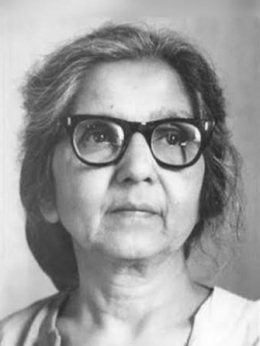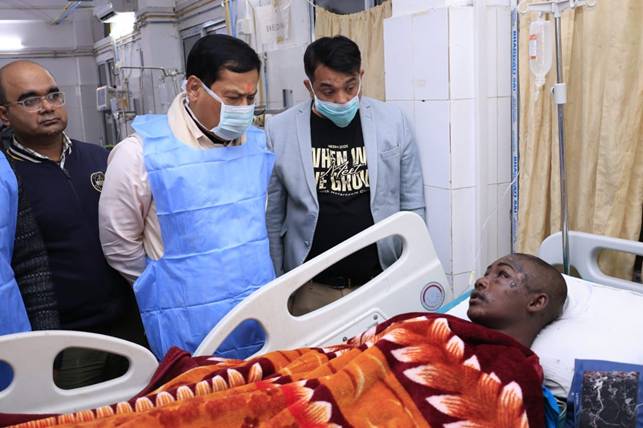
Aruna Asaf Ali
Today is the birth anniversary of Aruna Asaf Ali, a celebrated figure in India’s history. She is known for her remarkable contributions to both the socialist movement and the women’s movement. She emerged as a prominent leader during the 1942 Quit India Movement, a significant chapter in India’s struggle for independence. Her life and work exemplify courage, conviction, and a relentless pursuit of social transformation and socialism.
Aruna was born on July 16, 1909, in Kalka, which was then part of Punjab and is now in Haryana. From a young age, she was drawn to the Indian freedom struggle, influenced by her father’s journalistic background. She met her husband, Asaf Ali, in 1928.
Asaf Ali, already an active participant in the Non-Cooperation Movement led by Mahatma Gandhi, shared a deep interest in the independence struggle. Despite a 20-year age gap and different religious backgrounds, Aruna and Asaf Ali married in September 1928, symbolizing the Hindu-Muslim unity in the Indian freedom movement.
The couple moved to Delhi, where Aruna quickly became involved in the Civil Disobedience Movement of 1930. Her participation led to imprisonment, marking the beginning of her extensive involvement in social and political activism. Mahatma Gandhi viewed their marriage as a symbol of Hindu-Muslim unity, a sentiment echoed by Aruna Asaf Ali.
Aruna was a staunch opponent of communalism, advocating for secularism and social harmony throughout her life. She was present at significant events in India’s freedom struggle, including the bombing of the Central Legislative Assembly by Bhagat Singh and Batukeshwar Dutt. Her husband, Asaf Ali, played a crucial role in defending Bhagat Singh in court, further intertwining their lives with the revolutionary activities of the time.
In 1934, Aruna joined the Congress Socialist Party, aligning with prominent figures like Musammat Satyavati, a leading face of the women’s movement in Delhi. Aruna’s writings from the time highlight the significant role of women in the Indian socialist movement. She became a key figure in the Quit India Movement, famously hoisting the Indian flag at the Gowalia Tank Maidan in Bombay on August 9, 1942. Her defiance inspired many, and she continued to work underground, evading arrest and sustaining the freedom movement alongside leaders like Jayaprakash Narayan and Ram Manohar Lohia.
Even after India’s independence, Aruna Asaf Ali remained deeply involved in national and social movements. She contributed to the National Federation of Indian Women and other feminist organizations, advocating for women’s rights and social justice. Her writings and actions continue to inspire generations, emphasizing the need to address issues like capitalism, inequality, communalism, and corruption.
In 1958, Aruna made history yet again by becoming Delhi’s first elected Mayor, a testament to her popularity and administrative acumen. Throughout her public service career, she remained a beacon of integrity and resilience, embodying the values of compassion, justice, and equality.
Aruna Asaf Ali’s contributions were not only recognized within India but also on the international stage. In 1992, she was awarded the Padma Vibhushan, one of India’s highest civilian honours, in acknowledgement of her lifelong dedication to the nation. Posthumously, she was bestowed with the Bharat Ratna in 1997, a fitting tribute to her enduring legacy as a freedom fighter and social reformer.
Her passing away on July 29, 1996, marked the end of an era, yet her spirit continues to inspire generations of Indians to strive for a more just and equitable society. Her life remains a poignant reminder of the power of determination, courage, and unwavering commitment to noble ideals. As we commemorate her birth anniversary, let us reaffirm our pledge to uphold the values she stood for and ensure that her legacy shines brightly in the tapestry of India’s rich history.
In honouring Aruna Asaf Ali, we not only celebrate a remarkable life but also reaffirm our collective commitment to freedom, justice, and equality—a tribute worthy of a socialist of Indian Independence. Her legacy is a testament to her dream of a just and socialist India. Her life reminds us of the critical role women played in the freedom struggle and the importance of continuing their work in building a better nation. Her contributions to the Indian socialist and women’s movements are invaluable, and her vision for India remains a guiding light for all citizens committed to social transformation and national development.
*The writer is a sociologist and Gandhian social Activist. He teaches at Gandhian School of Democracy and Socialism, ITM University, Gwalior.






